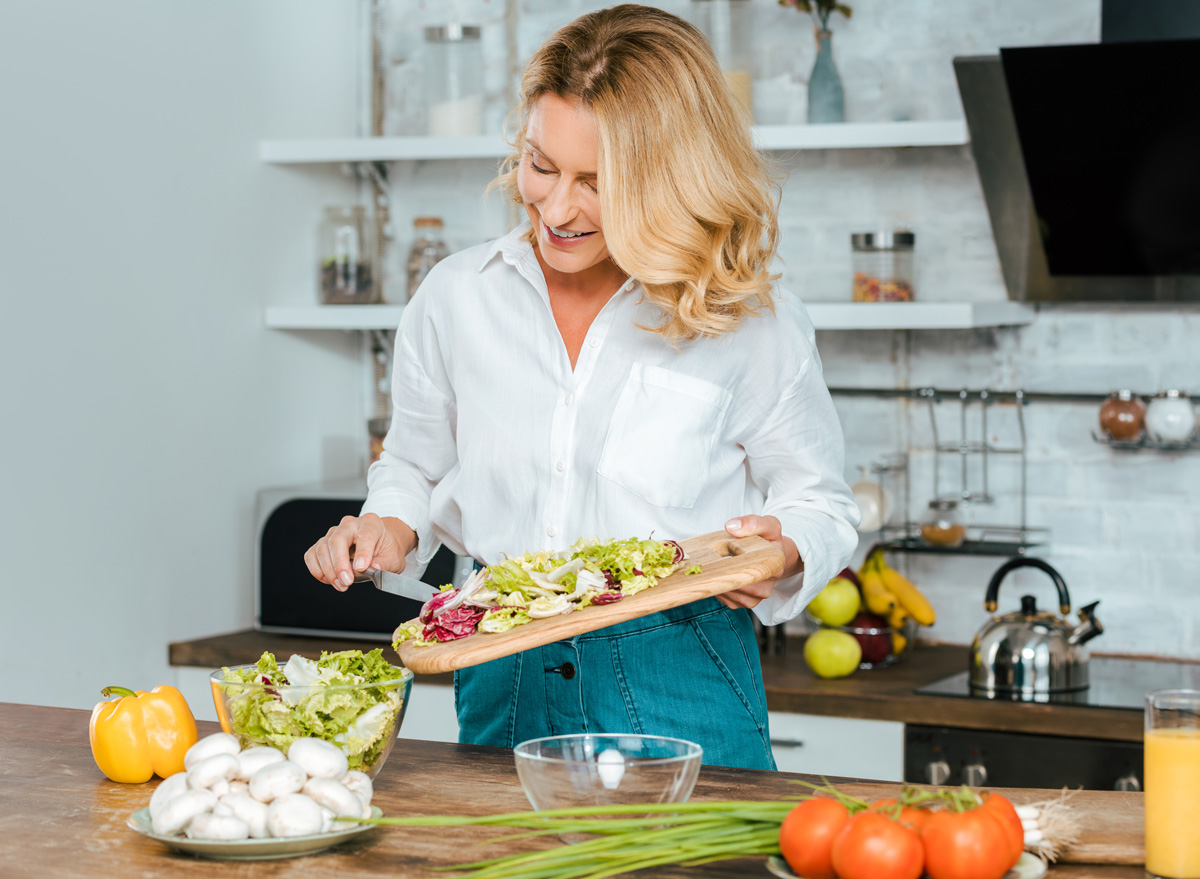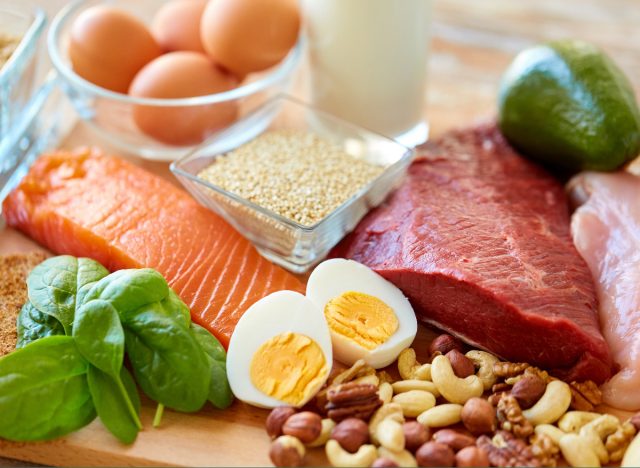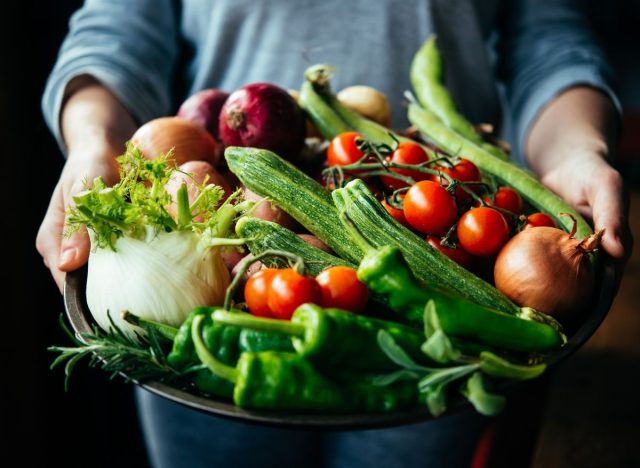Eating Habits To Avoid if You're Over 50, According to Experts

If you've recently celebrated your "over the hill" birthday, then chances are you're still getting used to all of the ways your body continues to change. While turning 50 is an accomplishment in itself and a birthday that should be celebrated fully, being in your 50s can also bring on plenty of frustration and confusion when it comes to your health.
According to the Mayo Clinic, being in your 50s means you may begin to notice changes in areas like heart health, digestion, bone health, and weight management. This may sound overwhelming, but experts can assure you that making the right diet and lifestyle changes can have an enormous impact on your health as you age.
To learn more, we talked with a handful of expert dietitians about the eating habits you may want to avoid after turning 50. And for tips beyond just the food you're eating, try one of these Exercises To Slow Aging After 50.
Skimping on fruits and vegetables
Eating plenty of fruits and vegetables in your daily diet can provide you with a variety of helpful nutrients and antioxidants. According to Lauren Manaker, MS, RDN, and author of The First Time Mom's Pregnancy Cookbook as well as Fueling Male Fertility, produce is also pivotal as you age because of its fiber content.
"Including enough fiber can help keep bowel movements regular, which can be a challenge for older people," says Manaker. "Because of this, skipping fruits and vegetables should be a habit that is avoided for those in the 50-and-over crowd."
Not getting enough fiber throughout the day can also have more severe, long-term effects on your health.
"Diets low in fiber contribute to many health problems that the aging population is already prone to," says Morgyn Clair, MS, RDN, who is a dietitian at AdventHealth West Florida.
However, fiber can help keep things like cholesterol, blood pressure, and blood sugar in check. For instance, a review published in the Journal of Chiropractic Medicine concluded that diets higher in fiber may also be helpful in preventing or lowering your risk of cardiovascular disease.
Not getting enough protein

Getting adequate amounts of protein on a daily basis is crucial for anyone, but especially for those who are over 50. This is mainly due to the natural progression of muscle mass loss over time.
"We naturally lose muscle mass in the aging process, so by not eating enough protein, we contribute to faster lean muscle mass loss," says Clair. "When there's adequate protein in the diet, we can help slow that natural progression and possibly prevent lean muscle loss and slow down the muscle aging process."
Even though much research has pointed to the benefits of a high-protein diet in overall health, especially in relation to muscle mass, many adults still aren't eating enough of it. For example, one 2019 report published in Nutrients points out that many people use the recommended daily amount of protein as a guideline for how much you should get, when in reality it should be used as a minimal amount of protein for optimal health. If you're unsure about whether or not you're getting enough protein in your daily diet, talk with your doctor as soon as you can to determine how much protein per day is right for you.
Neglecting to watching your portions
Another thing to consider as you age is how your metabolism is going to change over time. Recent research has found that metabolism declines at an older age than was previously expected, with one 2021 study published in Science finding that metabolism remains stable from about 20-60 years old, then begins to decline after 60.
Even though your metabolism may remain fairly stable in your 50s, it's still important to prepare your body for its changes. Lisa Young, PhD, RDN, author of Finally Full, Finally Slim and a member of our medical expert advisory board, asserts that one way to improve your metabolism and manage your weigh as you age is by being mindful of your portion sizes.
"Paying attention to your portions is one of best ways to prevent you from eating too many calories," Young advises.
Eating the same thing daily

One habit that may be hindering you from achieving optimal health as you age is not giving your body enough of a variety of foods.
"You need variety in your diet to ensure a wide range of nutrients are met, which is why 'eating the rainbow' is important because it provides the body with many different nutrients, as different colored foods are high in different vitamins and minerals," says Clair.
If you've never heard "eating the rainbow," it simply means that you're getting fruits, vegetables, and other plant products that are a wide range of colors, which ultimately just means you're switching up the foods you eat.
According to Clair, "If you eat the same thing every day, you run the risk of falling short in a few key essential nutrients such as iron, calcium, and B vitamins, which are particularly important as you age."
Skipping the yolks in your egg dishes
You may have grown up hearing that egg yolks are bad and need to be avoided if you have high cholesterol. But new research is continuing to debunk this as mostly a myth (unless you have high cholesterol or are trying to manage your cholesterol levels. In these instances, talk to a healthcare professional to find out if eating even marginal amounts of egg yolks is right for you, and if so, how much you can have.)
For those who have gotten the "ok" from their doctor to consume eggs, Manaker says that eating egg yolks can actually provide your body with helpful nutrients as you age.
"The yolk is a nutritional powerhouse that contains many brain health-supporting nutrients like choline," says Manaker. "Older adults can include egg yolks in their diet and, by doing so, will fuel their bodies with key nutrients that they need well within their golden years."









